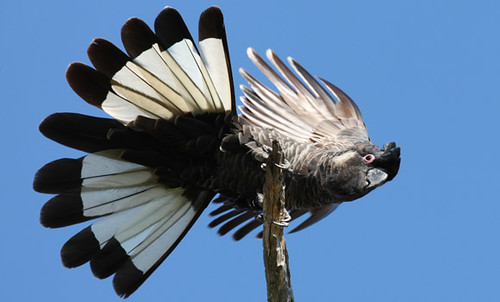Outlook bleak for Carnaby's black cockatoo
 Wednesday, November 6, 2013 at 0:20
Wednesday, November 6, 2013 at 0:20  The outlook is bleak for a threatened bird species that's unique to WA's southwest, research shows.THE outlook is bleak for a threatened bird species that's unique to Western Australia's southwest, research shows.
The outlook is bleak for a threatened bird species that's unique to WA's southwest, research shows.THE outlook is bleak for a threatened bird species that's unique to Western Australia's southwest, research shows.
As the habitat of Carnaby's black cockatoo is progressively destroyed by land clearing, hundreds of members of the public volunteer their time to the annual Great Cocky Count one night each year to monitor numbers of the rare bird in the Swan Region, including the Perth metropolitan area.
While this year's tally of 5800 cockies was a 44 per cent increase over the past two years, numbers are still well below the 6700 recorded in 2010.
"Paradoxically, the increased numbers seen this year may not be a good sign," BirdLife Australia's threatened cockatoos project manager Matt Fossey said.
"The greater number of Carnaby's seen north of the Swan is probably due to parts of the Gnangara, Pinjar and Yanchep pine plantations being cleared - by about a thousand hectares a year - which has removed a vital feeding and roosting area.
"As a result, the cockatoos have been forced to move into areas where they are more easily observed."
Cockies were seen north of the Swan River, while numbers recorded at regular sites further south were well down.
Mr Fossey said the WA government should halt the clearing of Carnaby's habitat on the Swan Coastal Plain until a strategic assessment of the Perth and Peel regions had been completed.
The number of Carnaby's black cockatoos has declined by at least 50 per cent over the past 45 years.

